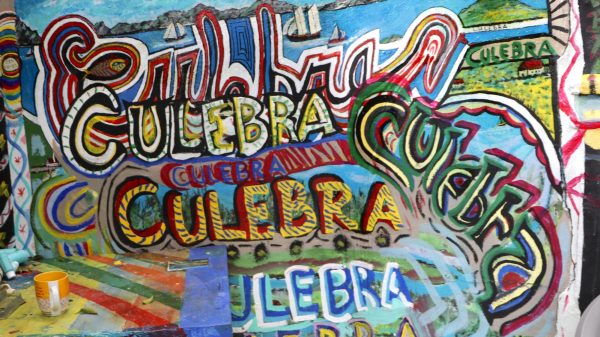The Ugly American

Americans have developed a funny way of traveling internationally. In our outpost American hotels we speak English and lay on foreign beaches without a care in the world. We tour cities with English-speaking guides and order meals in our native tongue. Sometimes, we peek into the windows of taxis to inquire about the fare across town and sneer when the driver replies in French or Spanish or Italian. In essence we hop from American lily pad to American lily pad all across the globe and never seem to fully grasp the flavor of where we have visited.
Frankly, I view this tradition as rather disrespectful. As Americans, we cannot expect that a restaurant owner in Spain will be able to explain to us in English the concept of eating tapas. It seems rather like the mentality of a spoiled child to think that everyone around the world should serve the needs of the American who doesn’t speak any other language but their own. In traveling without knowledge or respect for another language or culture, we ask our hosts to kindly spend a few years studying English so that we can feel a little more at home while we are abroad. It is simply the wrong outlook.
Unfortunately, it seems as though Colgate’s current Study Abroad program as a whole actually encourages students to carry on with the American tradition of packing home in their suitcase. Well over half of the current Colgate study groups have no prerequisite for study or mastery of a foreign language despite the fact that some of those programs take place in countries whose official language is certainly not English. And while it can be said that it is a luxury for students who have never been introduced to another language to study abroad without having to commit an exorbitant amount of time to crash courses on Japanese, it can also be said that Colgate is failing in terms of study abroad.
Perhaps even more important to Colgate students than promoting international respect is the actual personal impact an experience abroad can have on ourselves as students. Speaking another language does not only mean that one is capable with communicating practically with someone across the globe. It can also be a way for someone to completely transform himself or herself without abandoning their original character. Languages can change the way we think about the world around us, and they open doors for us to reflect on how we rightfully think or feel about a political matter or social trend. We can be persuaded, or defend ourselves, or double back. In times of turmoil, speaking a second language can feel like an escape from reality or a beacon of hope. Ultimately languages are portals into completely different worlds where cultural traditions can carry us into completely different states of being. Surely, Colgate students would never wish to prevent themselves from being able to transform or to grow. Surely, we are always looking for new ways to challenge ourselves to become better individuals and citizens of the world – both intellectually and personally. All things considered, studying abroad while not being required speak to a foreigner in their own language and to be fully capable of understanding what they say in return seems not only to be a display of disrespect, but also to leave an enormous gap in the overall experience.
We lose those vital human interactions that have the potential to change us forever as students and as people. Speaking a different language in a different place allows us to be fully transported to and immersed in a culture that we may not fully understand even after reading thousands of pages of research. It is an opportunity that Colgate students shouldn’t allow themselves to pass up. We should let language carry us around the world, not prevent us from seeing it.









